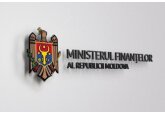
About 28.7 million lei were stolen from bank cards in Moldova in 2023, with the victims themselves granting access to 75% of this amount to fraudsters.
These data were announced at a press club meeting held within the framework of the national campaign of financial literacy. The campaign was organized by the National Bank and Expert-Group with the support of the USAID Program "Moldova Institutional and Structural Reforms Activity". Victor Susu, Director of the Payment Systems Department of the National Bank, spoke about the development of the non-cash operations segment, emphasizing that the positive dynamics in this sector is also associated with fraud risks. For example, in 2023, the amount of fraudulent operations reached about 28.7 million lei, which is 2.7 times more than in the previous year. At the same time, fraudsters gained access to 21.6 million lei (75% of the total amount withdrawn from payment cards) as a result of so-called social engineering - through lies and manipulations fraudsters induced people to voluntarily provide them with confidential payment data (security codes, one-time passwords, etc.) or even transfer money to them. At the same time, fewer frauds are committed with stolen cards, and in 2023, for the first time, not a single case of card counterfeiting was recorded. Expert Marina Solovieva said that fraud in non-cash transactions is also occurring: theft of confidential payment data (phishing), prepayment fraud (commission/collection), sale of fictitious goods/services, and attacks via remote access. Stas Madan, Program Director of Expert-Group, noted that such cases mostly occur due to the low level of financial literacy of the population. Experts emphasized that the implementation of minimum protection measures by the population can significantly contribute to reducing the number of fraudulent actions aimed at electronic payments. Citizens are recommended to: avoid publishing personal data in social networks, be careful when requesting bank card data - no financial institution or company will ask for PIN-code, CVV or other confidential information about the bank card by phone. It is also recommended that you update your pin code periodically, for example, every 3 months, etc. Following these simple rules can go a long way in protecting against fraud and keeping online transactions safe. // 02.04.2024 - InfoMarket







